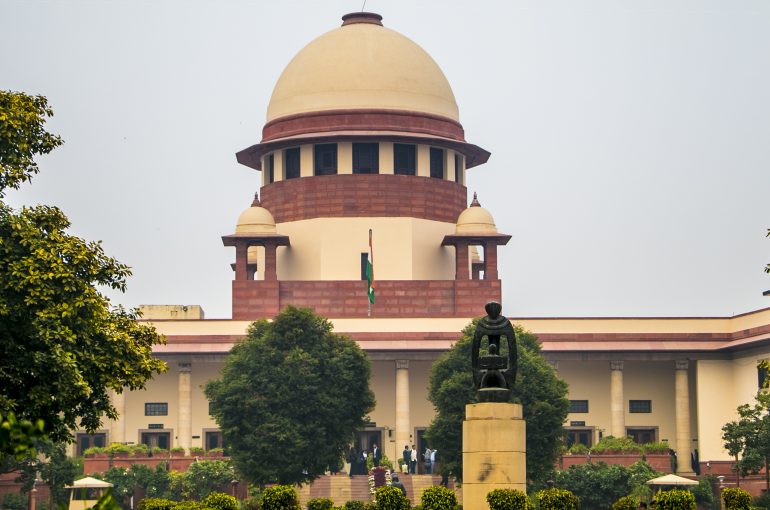SUPREME COURT UPHOLDS EXPORTERS’ RIGHTS: PROCEDURAL ERRORS CANNOT DEFEAT MEIS BENEFITS

INTRODUCTION
On 19 August 2025, the Supreme Court of India delivered a significant ruling in M/s Shah Nanji Nagsi Exports Pvt. Ltd. v. Union of India (2025 INSC 1032) (Justice NV Anjaria and Justice Aravind Kumar). The case revolved around the denial of benefits under the Merchandise Exports from India Scheme (MEIS) due to a clerical error in the shipping bills. The Court’s decision has important implications for exporters, customs authorities, and the administration of incentive schemes under the Foreign Trade Policy (FTP) 2015–20.
BRIEF FACTS
The Appellant, Shah Nanji Nagsi Exports Pvt. Ltd., is engaged in the export of corn starch. Between July and October 2017, the company filed 54 shipping bills that made them eligible for MEIS incentives.
However, while filing the bills through a customs broker on the ICEGATE platform, the required declaration of intent (“Yes” for claiming rewards) was mistakenly marked as “No.” This clerical error prevented the shipping bills from being transmitted to the Directorate General of Foreign Trade (DGFT) for processing. Upon noticing the error, the Appellant applied for rectification under Section 149 of the Customs Act, 1962. The Deputy Commissioner of Customs permitted the correction and replaced the “No” entries with “Yes.”
Despite this amendment, the DGFT refused to process the claim, citing system limitations and absence of original “Yes” entries. The exporter approached the Policy Relaxation Committee (PRC), which dismissed the claim without reasons or hearing.
The Bombay High Court, Nagpur Bench, dismissed the exporter’s writ petition in August 2021, holding that the fault lay with the customs broker.
ISSUES
The Supreme Court was called upon to determine:
- Whether an inadvertent procedural error in shipping bills, later corrected under Section 149 of the Customs Act, could extinguish the exporter’s substantive entitlement under MEIS.
- Whether the Policy Relaxation Committee’s rejection without assigning reasons or granting a hearing was legally sustainable.
ANALYSIS
The Supreme Court undertook a detailed analysis of both statutory provisions and prior judicial precedents:
Procedural vs. Substantive Rights
The Court emphasized that MEIS is a beneficial scheme designed to incentivize exports. Once exports are genuine and fall under the notified categories, a mere clerical error should not deprive exporters of benefits.
Section 149 of the Customs Act empowers Customs authorities to amend shipping bills, and once such corrections are lawfully made, they are binding.
Precedents Relied Upon
The Bombay High Court in Portescap India Pvt. Ltd. v. Union of India (2021) ruled that corrected inadvertent errors in shipping bills cannot defeat MEIS claims
In Technocraft Industries (India) Ltd. v. Union of India (2023) and Larsen & Toubro Ltd. v. Union of India (2024), the same principle was reinforced — that rigid technicalities should not override substantive statutory benefits.
Natural Justice Concerns
The Court criticized the PRC for rejecting the claim through a cryptic email without providing reasons or granting the Appellant a fair hearing. Such action violated the principles of natural justice.
Systemic Shortcomings
The Court observed that recurring disputes of this nature revealed systemic shortcomings in how DGFT and Customs integrated IT systems with legal provisions. It directed the Union of India to issue appropriate instructions or introduce technological adjustments to prevent exporters from being forced into avoidable litigation.
CONCLUSION
The Supreme Court allowed the appeal, set aside the Bombay High Court’s decision, and quashed the PRC’s rejection. The Court directed the authorities to process the Appellant’s MEIS claim on the basis of the amended shipping bills within 12 weeks.
This Judgment is a reaffirmation that procedural mistakes should not nullify substantive rights under beneficial schemes. It also underscores the judiciary’s insistence that administrative technology must serve the law, not obstruct it. For exporters, the ruling provides relief and clarity, ensuring that genuine trade incentives are not lost to clerical lapses.
SARTHAK KALRA
Senior Legal Assocaite
The Indian Lawyer & Allied Services
Please log on to our YouTube channel, The Indian Lawyer Legal Tips, to learn about various aspects of the law. Our latest video, titled “Air India Plane Crash in Ahmedabad: What Happened? | Legal Analysis | Advocate Sushila Ram Varma”
https://www.youtube.com/watch?v=azYUBkke9jI&t=13s





































Leave a Reply